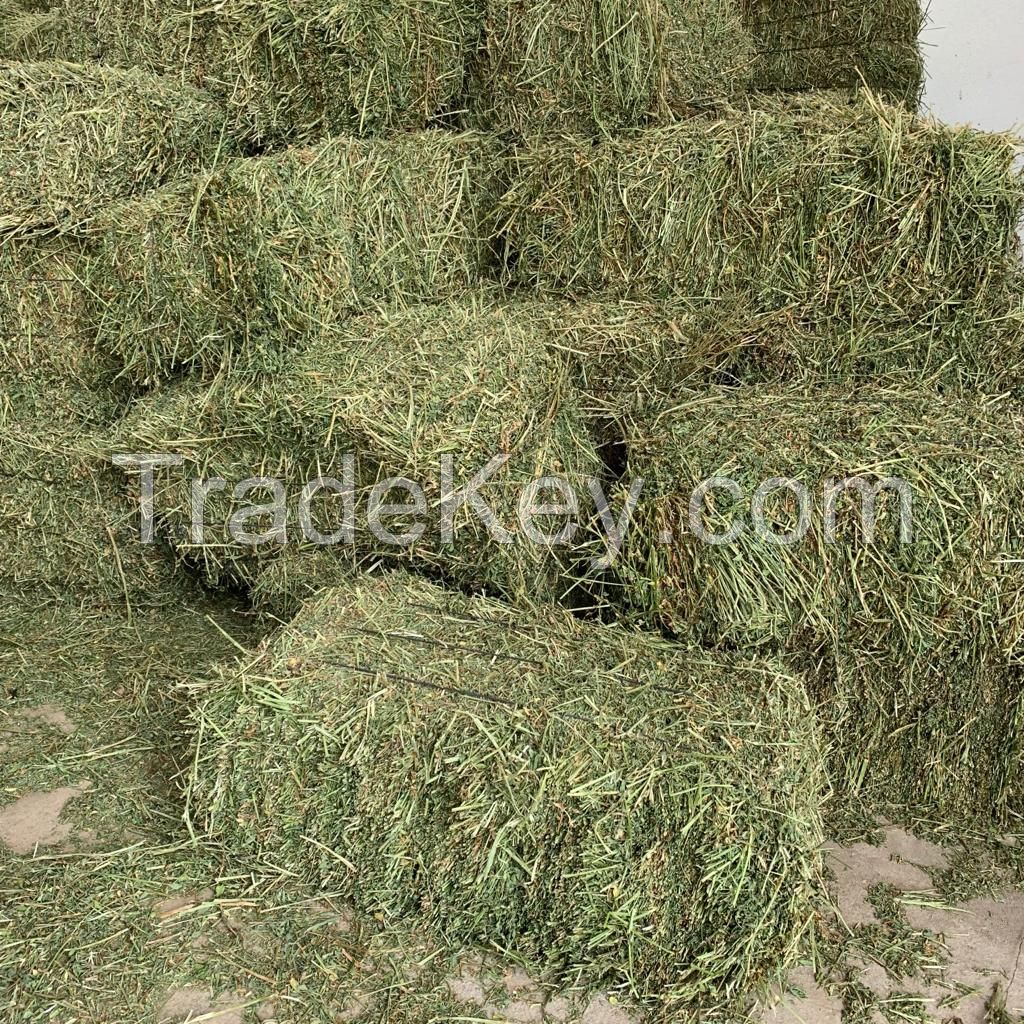
FOB Price
Obtener el precio más reciente( Negotiable )
|Minimum Order
Place of Origin:
-
Price for Minimum Order:
-
Minimum Order Quantity:
1 Forty-Foot Container
Packaging Detail:
Bales
Delivery Time:
15 to 30 days
Supplying Ability:
100000 Metric Ton per Week
Payment Type:
T/T, L/C
INTRODUCTION:
Alfalfa, known as the Queen of forages, is a legume, a nitrogen fixing plant that can extract nitrogen from the atmosphere and incorporate into plant proteins. The quality of alfalfa protein is excellent with more than *0% of its total protein being digestible.
Alfalfa has one of the highest feeding values of forages. However, it is sometimes underestimated as an energy source. A ton of alfalfa hay contains as much TDN as *5 bushels of corn (and as much protein as 2/3 ton of soybean meal).
Alfalfa hay will pass through the rumen of a cow in about one-half the time required by grass hay (*6 vs *0 hours). Therefore, animals fed alfalfa hay tend to gain body weight faster, produce more milk, and maintain themselves in better condition than those fed other forages.
Alfalfa can provide most minerals and vitamins at less cost than if supplied from processed sources. If alfalfa hay of 1% of the total body weight of the cow is fed, the beef animal will meet its daily requirements for calcium, magnesium, potassium, sulfur, iron, cobalt manganese and zinc. Phosphorus levels of alfalfa are more moderate, but still high enough that if fed at the above rates will supply about 2/3 of the daily requirements needed. The high level of calcium in alfalfa is especially important for lactating cows, young developing replacement heifers and bulls.
Mineral content of alfalfa is related to fertilization and local soils. Ceads is harvesting the alfalfa from the land on which the plant has originated in history and given the rich and fertile soil in addition to the adequate climate, the alfalfa plant raised on this soil is highly rich in minerals and especially lab results show that G7 alfalfa has up to three times more calcium than alfalfa grown elsewhere. It is therefore an excellent feed specially for dairy cows.
Leafy, green alfalfa hay is unusually high in carotene, the precursor of Vitamin A. Vitamin A is the most common beef cow vitamin deficiency. Good quality alfalfa hay can furnish all the Vitamin A needs of beef animals. In addition to many dietary functions of Vitamin A, this vitamin also may have therapeutic value, and be a contributing factor in preventing shipping fever complex and other disorders associated with animal stress.
Alfalfa hay is usually a good source of Vitamin E and selenium, depending on the soils nutrient status the hay was grown on. White muscle disease which sometimes causes serious losses of calves is caused by deficiency of Vitamin E and selenium. Sun-cured alfalfa hay is also a source of Vitamins D and K as well as riboflavin and niacin.
Protein supplementation is essential to maintain the body condition of the cow prior to entering the winter months and her last trimester pregnancy. Processed higher priced supplements are often used because of their convenience. By feeding 2.5 kg every day or 5 kg every other day, producers can meet the nutrient requirements of the animal cheaper. Not only does alfalfa furnish the needed protein but also stimulates the rumen to increase the consumption and digestibility of the lower quality forages.
